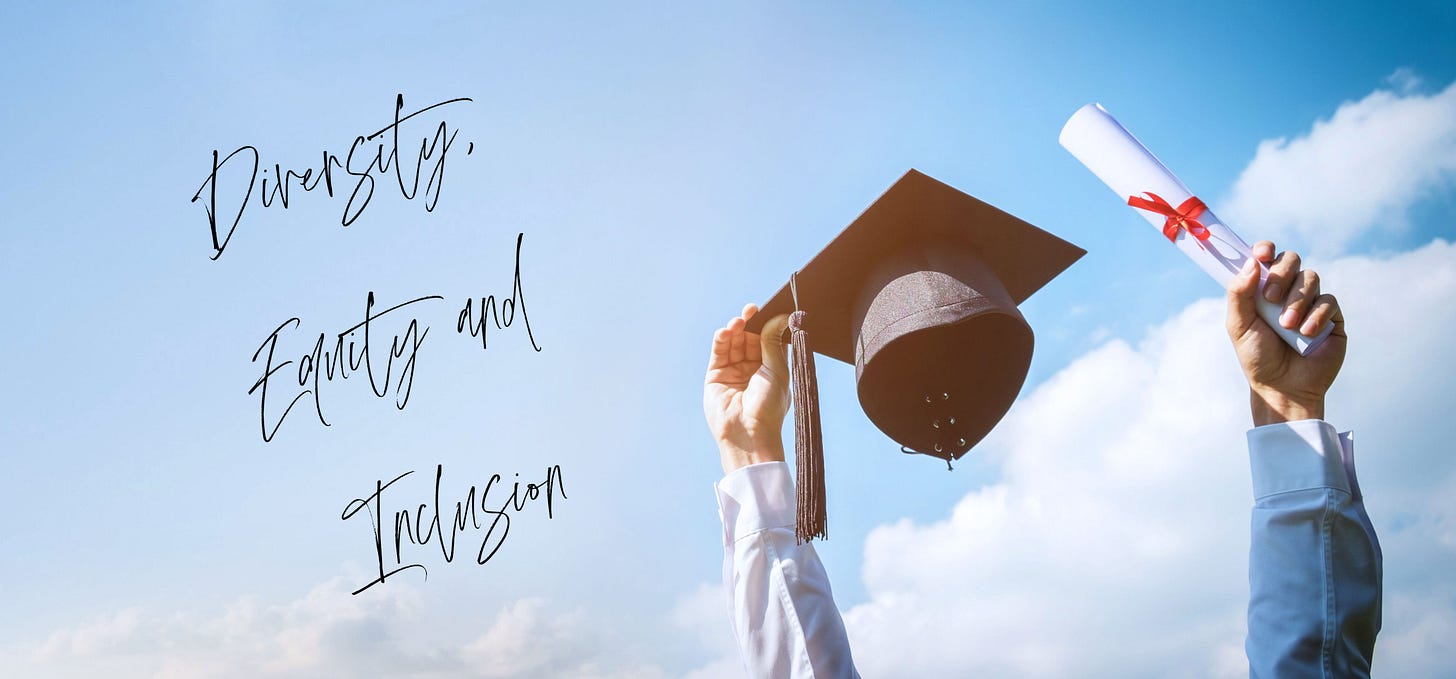A round-up of the latest and best writing and musings on the rise of illiberalism in the public discourse:
Rupa Subramanya: Is Justice Still Blind in Canada?
One of Ibram X Kendi’s more controversial maxims regarding race is that the “only remedy to past discrimination is present discrimination.” Canada is taking this principle to heart by determining that certain criminals could face longer or harsher sentences than others, not based on the crime committed, but rather the race of the criminal, Rupa Subramanya reports at the Free Press.
Canada is at the forefront of a broader movement that seeks to reimagine police, prisons, and the nature of justice—a movement that gained much greater momentum and cohesiveness in the wake of George Floyd’s May 2020 killing in Minneapolis.
“The protests of 2020 marked the new way in which many people thought about criminal justice,” Daniel Fryer, a University of Michigan criminal justice law professor, said. “The thing about the protests of 2020 is that they reached a global audience. Although the problem was at least ostensibly domestic, everyone in the world was watching.”
In the United States, the new thinking was reflected in the push for “decarceration” and the rise of progressive district attorneys—Larry Krasner in Philadelphia, Chesa Boudin in San Francisco, George Gascón in Los Angeles, Alvin Bragg in Manhattan, Kim Foxx in Chicago, and others. Central to the progressive prosecutor movement, Fryer said, was a rejection of “the gladiator, adversarial model.” Instead, he said, “the prosecutor’s role should be to seek justice in society.”
[. . .]
But Canada has gone further, insisting that judges explicitly consider race when meting out justice.
[. . .]
Race-based sentencing in Canada did not emerge in a vacuum.
It started in 1996, when Canadian lawmakers, upset that so many indigenous people were in prison, amended the Criminal Code, hoping to prod judges into considering indigenous people’s history of colonization—and dispensing less punitive sentences. In 1993, aboriginal peoples accounted for 17 percent of prisoners even though they were less than 4 percent of the total population.
Read the whole thing.
Francis Fukuyama: The New Right Loves the State
Ronald Reagan said, “The top 9 most terrifying words in the English language are: I'm from the government, and I'm here to help.” However, as far as the New Right is concerned, writes Francis Fukuyama at Persuasion, not only do we need the government’s help to fix certain social and cultural ills, a strong government is the only effective solution - and that’s just fine with them.
Conservative intellectuals have been trying to come up with a coherent justification for strong-state populist policies. Patrick Deneen has attacked the liberal project root and branch in his book Why Liberalism Failed, pointing to John Locke himself as the mistaken point at which Western thought turned away from religiously-defined (or what he calls “teleological”) political authority. He has also called for a conservative rethinking of its embrace of the private sector and capitalism. Catholic integralists like Harvard Law Professor Adrian Vermeule have been open in their support for a more hierarchical system that would substantively define the “common good” in place of liberalism’s agnosticism about final ends.
Finally, there has been a lot of open admiration expressed for strongman leadership and authoritarian government. Rod Dreher moved to Budapest and sees Viktor Orbán’s Hungary as a model for the United States, while Tucker Carlson spent a week broadcasting from there. Donald Trump in a recent interview effusively praised Xi Jinping, Vladimir Putin, and Kim Jong Un, all of whom were very “smart” and effective leaders. He has made various proposals for using violence and summary judgments against drug dealers and wants to round up homeless people and put them in special camps. Other conservatives have expressed admiration for El Salvador’s Nayib Bukele (including Senator Marco Rubio), a democratically elected leader who has used extrajudicial means to round up tens of thousands of gang members.
Make no mistake: this is not your grandfather’s conservatism. American conservatives are now talking more like older European ones—not like, say, the German Christian Democrats, who today are in many ways to the left of the Democratic Party, but older ones like Spain’s Francisco Franco or Portugal’s Antonio Salazar who were happy to see democracy abolished in their countries altogether. There is plenty to criticize on the woke Left, but this new type of conservative is not talking about rolling back particular policies; they are challenging the very premises of the liberal state and toying with outright authoritarianism. They are not simply deluded by lies about the 2020 election, but willing to accept non-democratic outcomes to get their way. And they are providing ample support for a broad retreat in foreign policy away from liberal internationalism towards isolationism.
Read it all now.
Rafael Oliveira: SUNY adds mandatory DEI social justice course to graduation requirements
Some college and universities (such as the University of Pennsylvania) require incoming faculty to provide diversity statements that “should include past experiences and activities, and also future plans to advance diversity, equity, and inclusion” to get into a position at the school. Now some colleges are instituting DEI requirements for students to get out, reports Rafael Oliveira for the College Fix.
[The State University of New York] becomes the latest higher education institution to implement DEI curriculum requirements into its graduation criteria, following institutions such as Rutgers University and the 23-campus California State University system.
A fact sheet provided to The College Fix by SUNY officials details how “diversity, equity, inclusion, and social justice content will be included as part of a student’s general education requirements for bachelor- and AA- and AS-degree seeking students entering starting in Fall 2023.”
[. . .]
Current students do not have to take the new course, but can instead meet the requirement by taking classes that meet the same identified learning outcomes in history, sociology, film, and other kinds of classes, according to the policy.
While professors have some discretion in approaching the course material, they must aim toward a strict framework of outcomes, the fact sheet states.
“In fulfilling the learning outcomes for the DEISJ category, courses must explicitly address how institutional and societal structures lead to inequities across groups. Further, students must be given opportunities to apply a social justice framework to the analysis of the questions of identity and equity that arise from the first two learning outcomes,” the document states.
Read it all.
Around Twitter
From a conversation the Mercatus Center’s Ben Klutsey had with Amanda Ripley about conflict “trip wires”:
Here’s the Foundation for Individual Rights & Expression with a case of just the fear of protest became a heckler’s veto:
And finally, from a New York Times article on the reframing of Cleopatra as black, Thomas Chatterton Williams notes the woke version of, Other than that, how was the play, Mrs. Lincoln?









